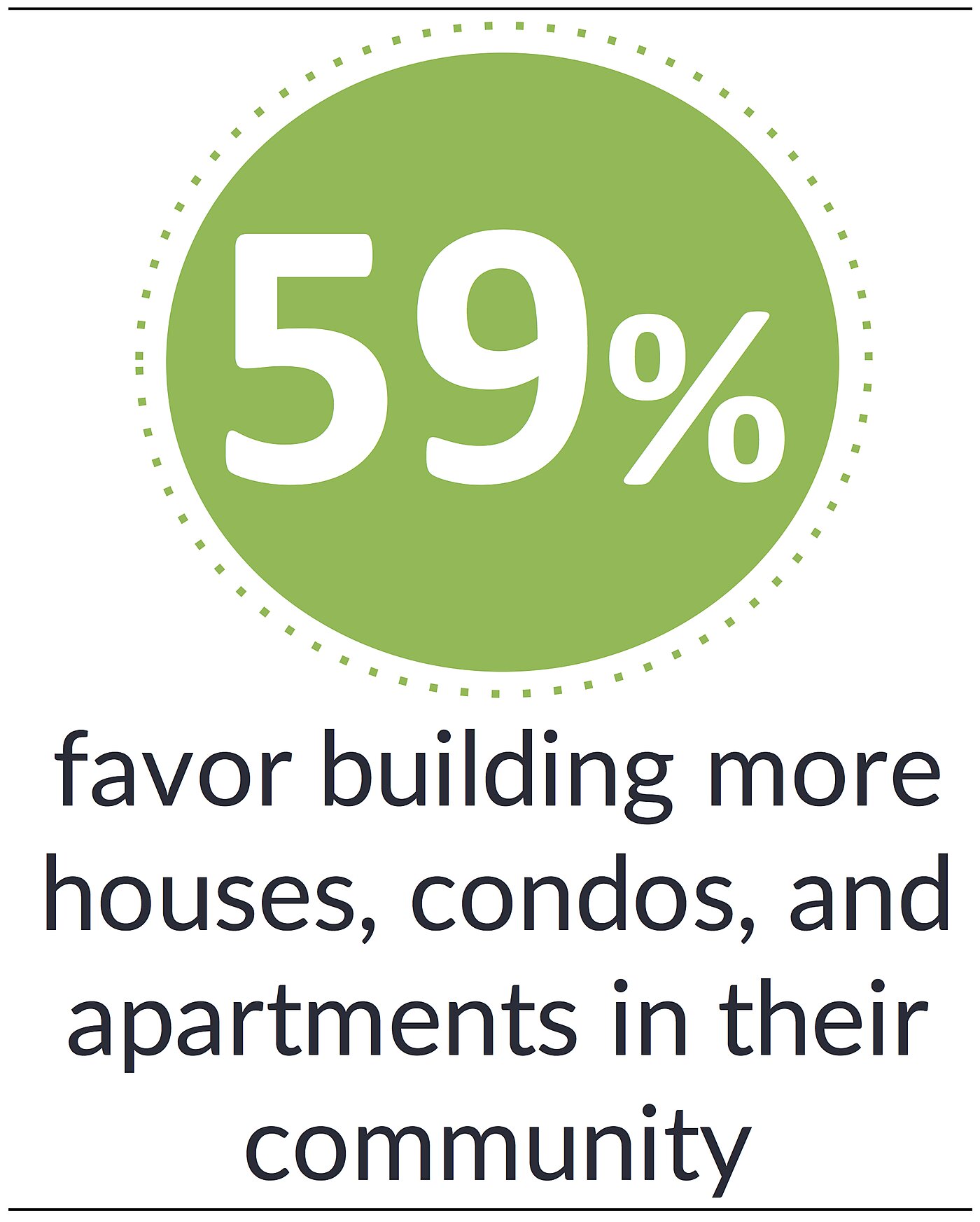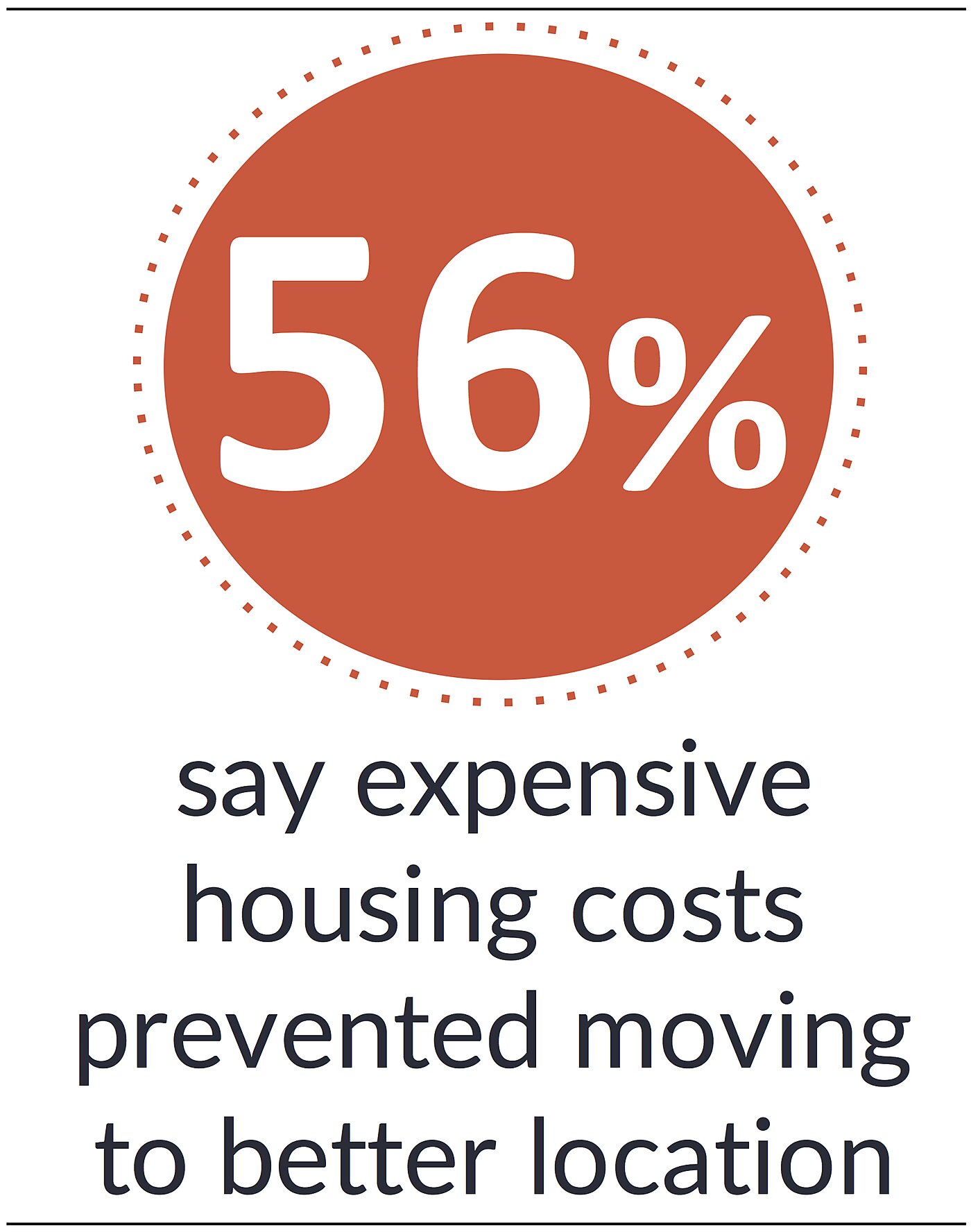The Cato 2019 Welfare, Work, and Wealth National Survey finds 59% of Americans favor building more houses, condos, and apartment buildings in their community while 39% oppose. These data suggest that liberalizing density zoning is desired among the public.
Full survey results and report found here.
Expanding the supply of housing is broadly popular across partisans and demographics—particularly in cities. City residents (69%) are nearly 20 points more supportive than suburban residents (52%) of building more housing. Majorities of White (56%), Black (62%), and Latino (66%) Americans also favor building more housing.
Majorities of Democrats (67%), independents (57%) favor building more housing in their neighborhoods. A slim majority (52%) of Republicans also favor more construction in their neighborhoods, while 46% oppose. Republicans’ more tepid support is notable because constraints on construction often come from government zoning restrictions. Yet Republicans typically are more skeptical of government regulation. The fact that Republicans are more likely to own homes may have something to do with it. A CBS News poll in 2012, accessed via the Roper Center iPoll Databank archive, found that Democrats (30%) are about twice as likely as Republicans (18%) to rent their homes. Just as allowing more construction can make housing more affordable for families, it puts downward pressure on home values for existing homeowners.
71% Favor Building More Housing if It Makes Housing More Affordable
Americans become even more supportive of building more housing in their communities if it made housing more affordable. Nearly three-fourths (71%) would favor building more houses, condos, and apartments in their community if it meant that “it would be easier to afford housing in your neighborhood.”
Americans Say Housing Is Too Expensive
One reason Americans may support more construction in their neighborhoods is that most have dealt with prohibitively high housing costs. A majority (56%) say that expensive housing costs have prevented them from moving to a better location. Not only that, but nearly half (44%) rate housing prices in their current neighborhoods as “bad.”
High housing costs have had a disproportionate impact among the nation’s poor and middle class. Nearly 8 in 10 (78%) of current welfare recipients report expensive housing costs prevented them from moving to a better neighborhood.
It’s not until families begin earning more than the median household income that Americans say housing costs are not prohibitive, the survey finds. Among those earning less than $60,000 a year, about two-thirds say expensive housing costs prevented them from moving to a better location. However, among those earning over $60,000, a majority (56%) say expensive housing costs did not prevent them from moving to a better neighborhood.
The high cost of housing is a post-partisan problem. Majorities of both Democrats (61%) and Republicans (54%) say expensive housing costs prevented them from moving to a better neighborhood.
Full survey results and report found here.
Read more of the survey report here.
The Cato Institute 2019 Welfare, Work, and Wealth Survey was designed and conducted by the Cato Institute in collaboration with YouGov. YouGov collected responses online March 5 to 8, 2019 from a representative national sample of 1,700 Americans 18 years of age and older. The margin of error for the survey is +/- 2.2 percentage points at the 95% level of confidence.
Sign up here to receive forthcoming Cato Institute survey reports.




